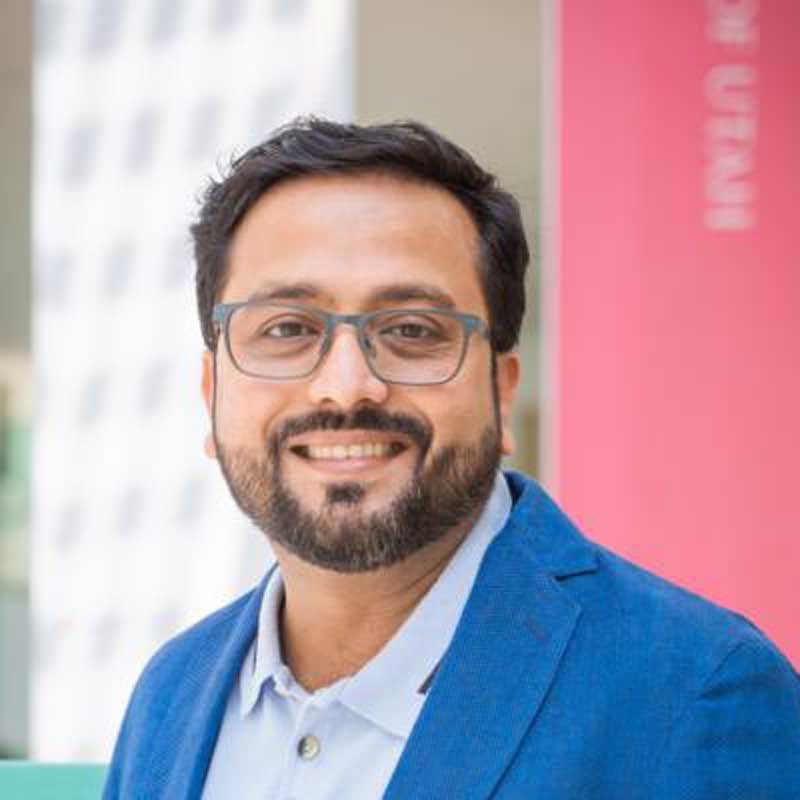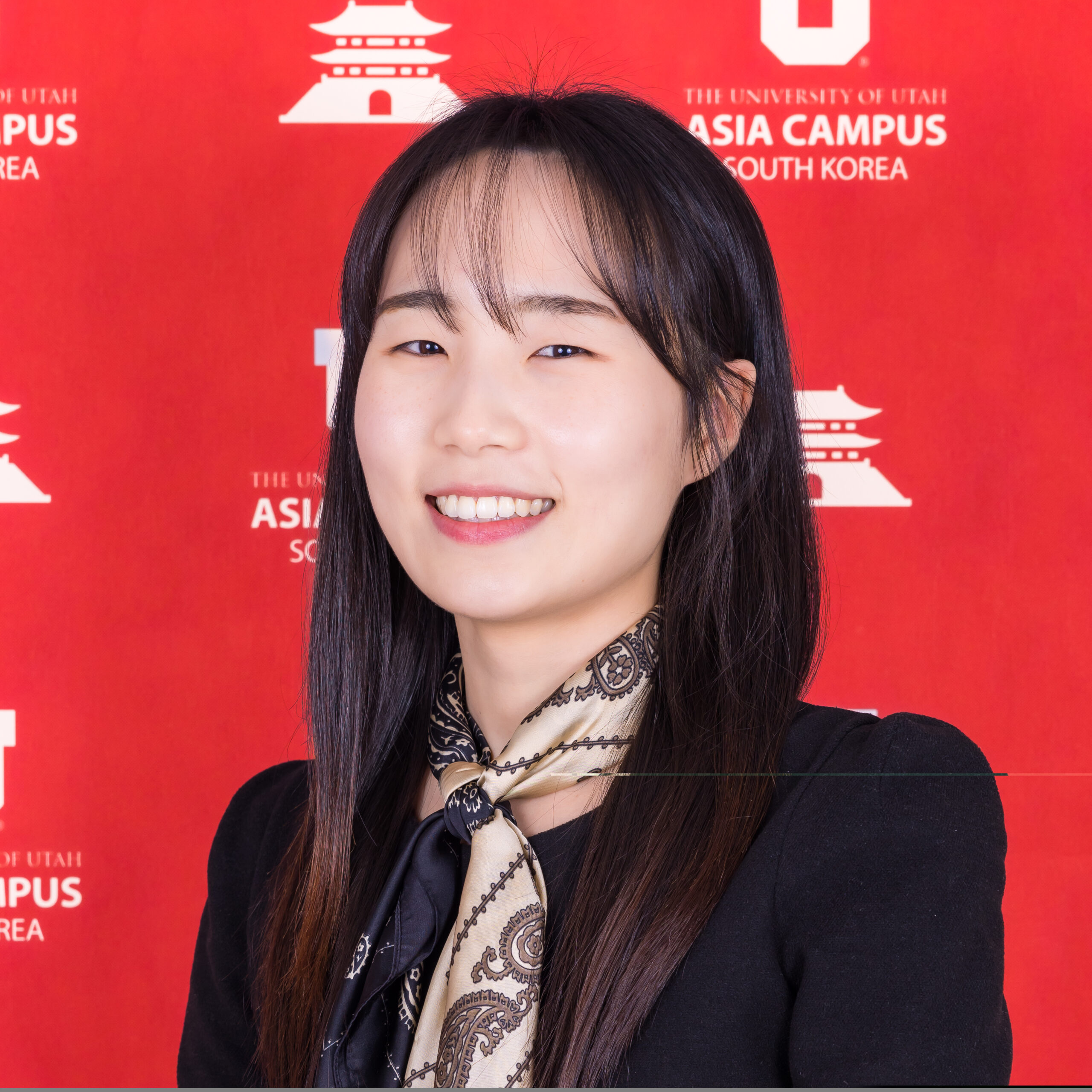Urban ecology involves the study of the relationships between humans and nature in urban environments. If you’re interested in enhancing the vitality and sustainability of various communities by exploring the interrelationships among social, environmental, and economic systems, then a degree in Urban Ecology at the U is for you! It is designed to respond to problems and opportunities that exist in cities, suburbs, small towns, and rural places, particularly in the Intermountain West. These include environmental management, fragile landscape protection, recreation and tourism, public lands planning, rapid population growth, regional transportation, energy production, and sprawl.
As a student of the Urban Ecology program, you will take classes in planning, field studies, economics, law, and social justice. Explore a variety of electives topics such as green infrastructure, sustainable development, community leadership, and cities in literature. In your senior year, you will take the Ecological Planning Workshop, which involves tackling real-world problems through completing an internship.
The Student Experience
While being students of the program, they can take time to interact and network with peers and faculty, attend special guest lectures, and join one of the university's student organizations.
In Salt Lake, the students can learn about research being conducted the Metropolitan Research Center and the Center for Ecological Planning & Design. They can also contribute to the field by completing your own research project or get involved in a community-based project.
Career Opportunities
The undergraduate program in Urban Ecology will prepare students for professional careers in environmental and sustainability planning, public health, public policy, and community development and planning. U graduates have used analytical and technical skills to pursue work as Geographic Information Systems (GIS) analysts, planning consultants, conservationist, community organizers, environmental outreach, and project engineers. With further education, Urban Ecology graduates can pursue a career in architecture, law, real estate development, social work, urban design, urban & regional planning.
Urban Ecology Major
Urban ecology is the study of human settlements – from rural communities to megacities – consisting of dynamic relationships between social, natural, and built systems. The urban ecology program in City and Metropolitan Planning at the University of Utah takes an action-oriented, community-engaged approach to help students gain the knowledge and skills to foster sustainable, resilient, and equitable communities. The program is responsive to urban and rural problems and opportunities that exist in the Intermountain West such as population growth and demographic change, economic restructuring, natural resource management, and climate change.
Admission Requirements
Prior to beginning studies in Urban Ecology, students must satisfied the requirements below:
Degree Requirements
Required Courses
*Total Credit: 42
Design Foundations Courses:
- ARCH 2630 - Design Foundations Workshop 3 Credits
- DES 2630 - Design Contexts 3 Credits
- CMP 2010 - Design Ecologies 3 Credits
Complete the Following:
- CMP 3100 - Planning Theory and Practice 3 Credits
- CMP 3200 - Ecology of Human Settlements 3 Credits
- CMP 3270 - Visual and Oral Communication 3 Credits
- CMP 3400 - Economy of Cities 3 Credits
- CMP 4010 - Field Studies in Urban Ecology I 3 Credits
- CMP 4020 - Field Studies in Urban Ecology II 3 Credits
- CMP 4260 - Land, Law & Culture 3 Credits
- CMP 4280 - Ecological Planning Workshop 3 Credits
- CMP 4450 - GIS for Urban Ecologists 3 Credits
- CMP 4600 - The Just City 3 Credits
- CMP 4954 - Internship in Urban Ecology 3 Credits
Elective Courses
*Total Credit: 15-23
- Urban Ecology majors are required to take a minimum of 18 credits of electives.
- Electives must be 3000 level and above. Approved elective courses and further details for Urban Ecology major can be found in the link: Elective Courses for Urban Ecology Major
4 + 1 Program
BS/BA Urban Ecology + MCMP
The BS/BA + MCMP is a “4+1” program through which eligible students complete both a bachelor’s in Urban Ecology and a Master of City & Metropolitan Planning (MCMP) in five years. The BS/BA in Urban Ecology involves the study of the relationships between humans and nature in urban environments, emphasizing the interrelationships among social, environmental, and economic systems, while the Master of City & Metropolitan Planning focuses on the key competencies of technical literacy, ethical inquiry, inclusive community engagement, ecological thinking, and physical planning and design. The 4+1 program combines the strengths of both programs, preparing students to think ecologically in guiding the growth and development of cities and regions both locally and globally.
4 +1 Program Admission

Students seeking to take advantage of the 4+1 program must first meet current University of Utah undergraduate admission standards, be accepted into the BS/BA Urban Ecology major and be in good standing within the major.
BS/BA Urban Ecology students who want to enter the 4+1 program must apply for admission during the spring semester of their junior year (i.e., after the completion of 75 undergraduate credit hours). To be admitted, applicants must have a cumulative undergraduate GPA of at least 3.4 and demonstrated excellent performance in at least six of the BS/BA Urban Ecology required core courses.
4 +1 Requirement
Students admitted into the 4+1 program will work with an academic advisor to carefully plan out their program of study for the 4th and 5th years.
Students spend their senior year completing the requirements for the BS/BA Urban Ecology degree including three MCMP core courses (at the 5000-level) that count as BS/BA Urban Ecology electives. Students then move on in their fifth year to take an additional 30 graduate-level credit hours, satisfying the remaining MCMP core requirements, plus six credit hours of 6000-level electives.
Students completing these requirements receive two degrees: Bachelor’s Degree in Urban Ecology and the Master of City & Metropolitan Planning Degree, simultaneously.
Urban Ecology Minor
Admission Requirements
Students must have a cumulative GPA of 2.7 or higher to be admitted to the minor. To enter the minor, a student must first consult with the Urban Ecology advisor, Heidi Kim, for review and approval of the courses to be applied.
Degree Requirements
- • 18 Total Credits
- Urban Ecology Minor Core Courses / Complete at least 4 of the following:
- ARCH2630 - Design Foundations Workshop (3)
- CMP2010 - Design Ecologies (3)
- CMP3200 - Ecology of Human Settlements (3)
- CMP3400 - Economy of Cities (3)
- CMP4010 - Field Studies in Urban Ecology I (3)
- CMP4600 - The Just City (3)
- DES2630 - Design Contexts (3)
- Urban Ecology Elective courses / Earn at least 6 credits from CMP3100~4999 courses
Want to Declare a Major or Minor?
Students must meet the program entry requirements to declare a major or minor in Urban Ecology.
Please submit the major declaration request form or contact the Urban Ecology advisor.
Meet Your Faculty


Dr Reazul Ahsan joined the City and Metropolitan Planning Department in August 2019 as an Assistant Professor (Lecturer). He is now an academic leader and coordinator of the Urban Ecology Program at the University of Utah Asia Campus in Songdo, South Korea. In 2013, Dr. Ahsan earned his Ph.D. in Urban and Regional Planning from the University of South Australia. He worked as a research fellow for the "Malaysian Sustainable City Program" at the Massachusetts Institute of Technology (MIT) in the Department of Urban Studies and Planning from 2015 to 2016. Dr Reazul began working as a lecturer in the Department of Environmental Humanities at the University of New South Wales in Australia in 2017. Prior to joining the City and Metropolitan Planning Department. Reazul was a research fellow at Oman's Sultan Qaboos University and Kyoto University in Japan. Sustainable urban planning, environmental planning, smart urbanism, urban environmental management, climate-adaptive community design, and urban ecological planning are his primary research interests.
He has worked in higher education in Bangladesh, Japan, Malaysia, Oman, Thailand, the United Kingdom, and the United States for over 12 years. For his Master's and PhD, Dr. Reazul awarded an Asian Development Bank Scholarship (2001-2003), an Erasmus Mundus Scholarship (2006-2008), and a University President Scholarship (2009-2013).
Publications
1. Parvin, G., Takashino, N., Islam, S., Rahman, H., Abedin, M., & Ahsan, R. 2022. Disaster-induced damage to primary schools and subsequent knowledge gain: Case study of the Cyclone Aila-Affected community in Bangladesh. International Journal of Disaster Risk Reduction, 72, 102838. doi: 10.1016/j.ijdrr.2022.102838
2. Parvin, G.A., Rahman, M.H., Ahsan, R., Abedin, M.A. and Basu, M. 2022. "Media discourse in China and Japan on the COVID-19 pandemic: a comparative analysis of the first three months", Journal of Information, Communication and Ethics in Society, Vol. 20 No. 2, pp. 308-328. https://doi.org/10.1108/JICES-05-2021-0047
3. Al-Awadhi, T., Nasiri, N., Ahsan, R., Hereher, M. and Charabi, Y., 2021. An Integrated Approach to Coastal Zone Management to Control Development and Ensure Sustainability in a Rapidly Increasing Coastal Urban Environment: The Sultanate of Oman. Environmental Justice, 14(5).
4. Parving, G. A., Ahsan, R., Yusop, A. Y. B. M., Gordon, J. A., Abedin, M. A. & Ahmad, M. H. 2021. Kampung (village) flood resilience: an empirical analysis in Malaysia. Environmental Hazards, Vol. 20 (5). 550-574.
5. Parving, G. A., Ahsan, R., Rahman, M. H. & Abedin, M. A. 2020. Novel Coronavirus (COVID-19) Pandemic: The Role of Printing Media in Asian Countries. Frontiers in Communication, 5.


Dr. Idil Ayral joined the City and Metropolitan Planning Department in January 2023 as an Assistant Professor (Lecturer).
She received her BArch degree from the Department of Architecture at Istanbul Technical University; followed by her MSc degree in the History of Architecture program. Her extensive research on the 19th century garden kiosks of Istanbul has been published as a book in 2020. She worked as an architect in several companies before starting her academic career. In 2012, she was appointed as a teaching assistant in the Department of Architecture of Fatih Sultan Mehmet University.
She completed her Ph.D. in 2018 at Pompeu Fabra University, Department of Humanities History Program with a major interest in contemporary urban history and transformation of public space in the city of Barcelona. Her Ph.D. thesis was awarded the Excellent Cum Laude honour. During her Ph.D. studies, she was a member of the research team INVBAC, ‘The City Invented: Memory, Visuality, and Cultural Transfer in Contemporary Barcelona’, funded by the Spanish Ministry of Education. She was assigned as instructor for several workshops at private academies and institutions.
She worked as a visiting professor in the Department of Urban Planning and Design of the University of Seoul between 2019-2022. In the UCID research lab, she worked on a research project on the future city, walkable people-oriented city, and post-pandemic urban space.
For several years, she was the Chairman of the International Exchange Committee of the Architectural Design Institute of Korea (ADIK) and assisted international architectural exhibitions. In addition, she collaborated with several architectural education entities as an advisor.
In 2022, she joined Mirae Environment Plan & Architects as the Team Manager of the Architectural Design Department and worked on green remodelling projects. She also contributed to the international architectural magazine C3 as a writer and copyeditor.
Learning several languages such as Portuguese, Catalan, Spanish, and Korean, and her long-term secondary career in music have played an important role in her life abroad and her adaptation to various cultures and societies.
Publications
Meet Major Advisor
Communication / Urban Ecology / Games

Hyein Lee
032-626-6110
u640
Book an Appointment
Your academic advisor can provide invaluable assistance with major/minor declaration, courses and registration, research opportunities, internships, and more. Book an appointment through the button below if you need any help with your major.






